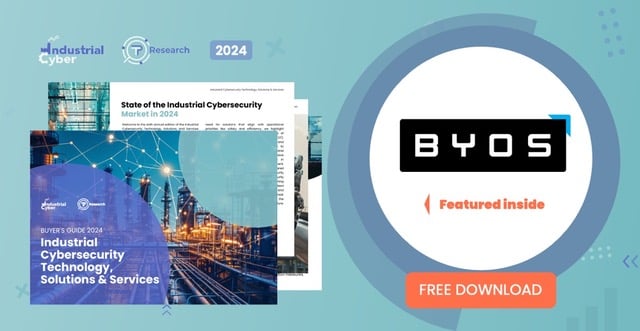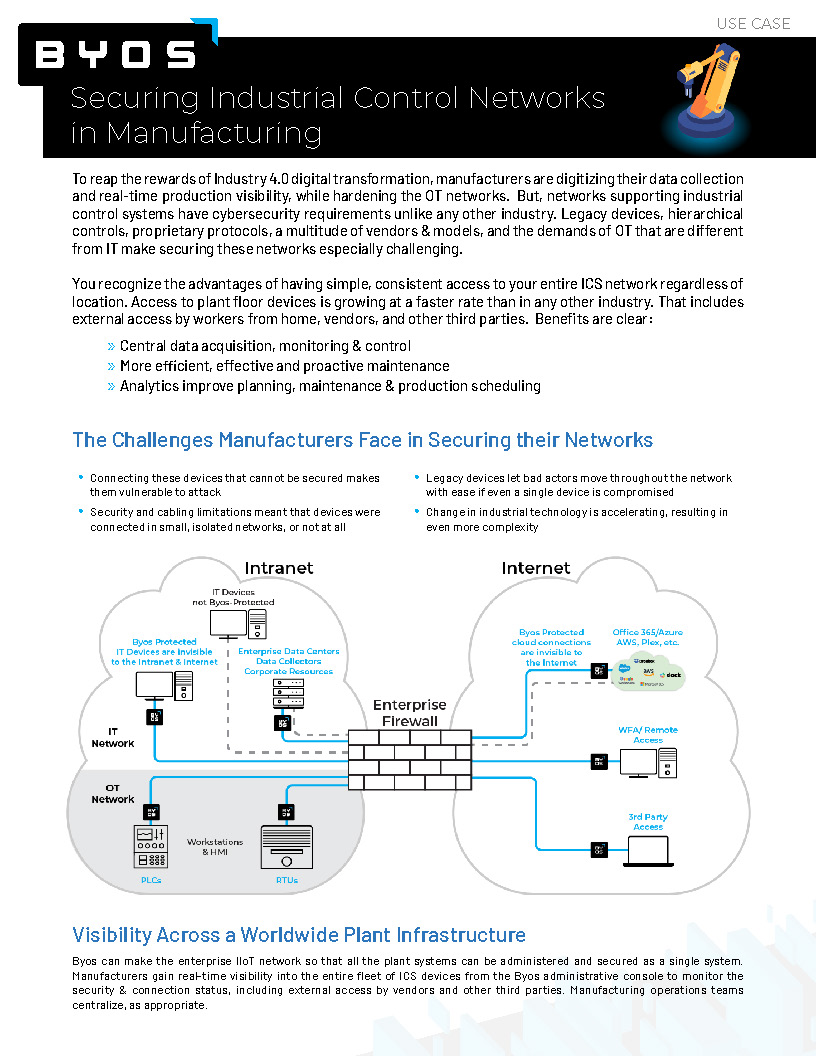Cybersecurity in Manufacturing
Defend Your Plant Floor Against Cyber Threats.
Manufacturing is essential to progress. Unfortunately, this sector — as critical now as it has ever been — is under attack. Cybercriminals are taking advantage of the rise of Industry 4.0 tech, finding the newly upgraded systems vulnerable to compromise. Manufacturers must go beyond the standard cybersecurity toolkit. Their devices, systems, and processes are unique, and the optimal way to defend them is to use solutions tailored to them. Byos’ edge microsegmentation solution, the Byos Secure Gateway Edge, can help safeguard your operational technology (OT) against malicious actors.
Manufacturing Cybersecurity Explained
What Is Manufacturing Cybersecurity?
Crafting a cybersecurity plan for manufacturing involves utilizing a range of cybersecurity tools, methods, and strategies to safeguard industrial environments from potential cyber attacks. To develop an effective security strategy, businesses must incorporate established IT security practices as well as methods tailored to the specific requirements of the manufacturing sector
Established best practices
Adopting established cybersecurity tactics like ongoing employee education, device hardening, multi-factor authentication (MFA) and more will provide a fundamental layer of protection for manufacturers.
Innovative approaches
Manufacturers should also adopt new cybersecurity solutions built for industrial systems. Edge microsegmentation, for example, can help organizations secure legacy devices, prevent lateral movement, and significantly reduce the attack surface.
Read What Is Manufacturing Cybersecurity? to continue learning about how manufacturers protect their assets from cyber attacks.
Manufacturing Cybersecurity Risks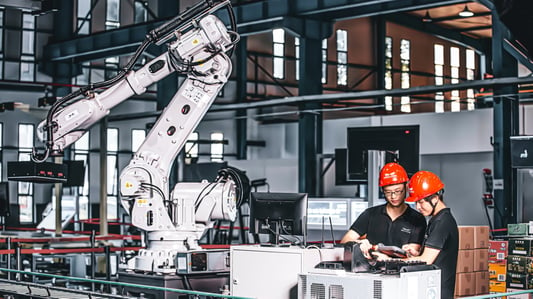
What Is Motivating Cyber Attackers to Target Manufacturing?
Manufacturing has many characteristics that have made it an increasingly popular target of cybercrime. These motivations include its high-value intellectual property and the leverage the industry’s critical infrastructure status and downtime intolerance affords malicious actors.
High-value Intellectual Property
A Deloitte survey of manufacturing executives found that respondents ranked intellectual property (IP) theft as the number one cybersecurity threat. Proprietary processes and technology are a vital source of market differentiation for manufacturers — and have made these assets a prime target for cybercriminals.
Critical Infrastructure Status
Manufacturers and industrial companies commonly serve as key infrastructure for their region, making their operation integral to public safety and security. This status can attract the attention of terrorist groups and nation-state actors, as well as financially motivated groups looking to use a manufacturer’s vulnerability as leverage.
Downtime Intolerance
Manufacturers do everything they can to avoid disruption because a single hour of unplanned downtime can incur hundreds of thousands in production losses. Cybercriminals are aware of this downtime intolerance, which is why ransomware attacks have become increasingly common in the industry.
Read The 3 Biggest Cybersecurity Threats Facing the Manufacturing Industry to learn key lessons from recent high-profile manufacturing cyberattacks.
Manufacturing Cybersecurity Considerations
What Are Prime Cybersecurity Challenges for Manufacturers?
Every year, the manufacturing industry produces tens of thousands of products that are the lifeblood of the global economy. Because the sector has developed specialized techniques and technologies to support this effort, companies in this space have unique considerations regarding cybersecurity.
Remote Access
Manufacturers increasingly rely on connected devices as part of the production process, but this trend has left many companies even more vulnerable to new attack vectors. IT teams often fail to apply sufficient security controls across the growing Wi-Fi access point sprawl. The result: a large and easily exploitable attack surface.
 Legacy Devices
Legacy Devices
Manufacturers have immensely complex production systems that are a mix of newer machinery and legacy devices. Due to compatibility issues or technological limitations, these older machines are difficult to bring up to modern security standards, leaving large portions of the company’s network vulnerable to compromise.
 Vendor Implementation
Vendor Implementation
Manufacturing systems are also supported by a patchwork of vendor and third-party technology products. While these purpose-built solutions greatly enhance the efficiency of the process, they also introduce their own risks. Each integration represents a separate access point that a malicious actor could use to gain footing in the system.
If you are responsible for securing critical infrastructure, you may find this article valuable: Cybersecurity for Chemical Manufacturing: 5 Unique Considerations.
Manufacturing Cybersecurity Statistics
What Trends Are Driving the Rise of Cybersecurity in Manufacturing?
While manufacturing used to be more insulated from cyber attacks than other industries, the growing sophistication of industrial technology has opened the door to malicious actors — leading to a dramatic uptick in the number of incidents. Here are the latest figures on that and other trends driving cybersecurity adoption in this space:
Growing incidence of cyberattacks
61% of companies in the industry report that cyberattacks are more common in 2022 than in 2021.
Financial impact of cyberattacks
It costs an average of $2M for a manufacturer to recover its systems after a ransomware attack.

Widespread lack of cybersecurity expertise
Around 50% of industrial sector companies lack sufficient cybersecurity knowledge and resources.

Effectiveness of cybersecurity adoption
75% of the companies in the industrial sector report no breaches after improving their security posture.

Vulnerability of manufacturing equipment
Research indicates 73% of operational technology (OT) devices are left entirely unmanaged by IT.
Read The Big List of Manufacturing Cybersecurity Statistics to explore the numbers behind key cybersecurity manufacturing trends.
Manufacturing Cybersecurity Response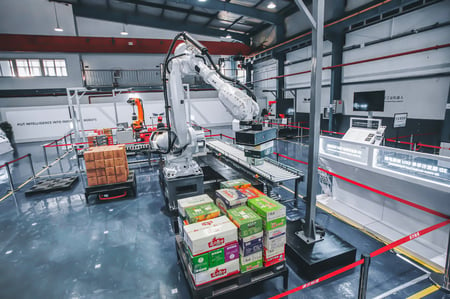
How Can Companies Respond to the Growing Cyber Threat?
Manufacturers can no longer afford to neglect cybersecurity. Cybercriminals across the globe have turned their attention to this industry, and the companies that act now will safeguard themselves, their clients, and sometimes their communities from danger. Here are crucial steps that an organization can take to mitigate cyber risks:
Understand Your Vulnerabilities
Learning about the industry's most prevalent cybersecurity risks is a great start, but you cannot take effective action until you have thoroughly vetted your network for vulnerabilities. Hiring a security consultant is one option. Another popular method is to use a comprehensive survey to generate a custom assessment.
Develop A Cybersecurity Plan
Once they have a clear picture of their vulnerabilities, manufacturers are well on their way to developing a cybersecurity plan for their organization. Read this step-by-step guide to building a manufacturing cybersecurity plan for an in-depth guide to managing that process.
Manufacturing-Specific Solutions
Although implementing generalized cybersecurity technology is important, organizations must utilize solutions developed for manufacturing technology and processes. Industrial edge microsegmentation solutions can provide the remote access point security, legacy device protection, and vendor access controls that companies in this space need.
Improve your company’s security posture today: Read the free Network Threat Prevention Guide to get an understanding of key network threats and what to do next.
Top Choice in Industrial Cybersecurity: Byos feature in Annual Buyer's Guide
Byos has been featured in the 2024 Industrial Cybersecurity Buyer’s Guide by Industrial Cyber. Read more here to understand why Byos features among the industry-leading solutions to safeguard your critical infrastructure.
How Byos Can Help
Edge Microsegmentation for Zero Trust Manufacturing Security
Byos is dedicated to helping organizations protect their manufacturing systems against threats, vulnerabilities, and attacks. Want to know more?


